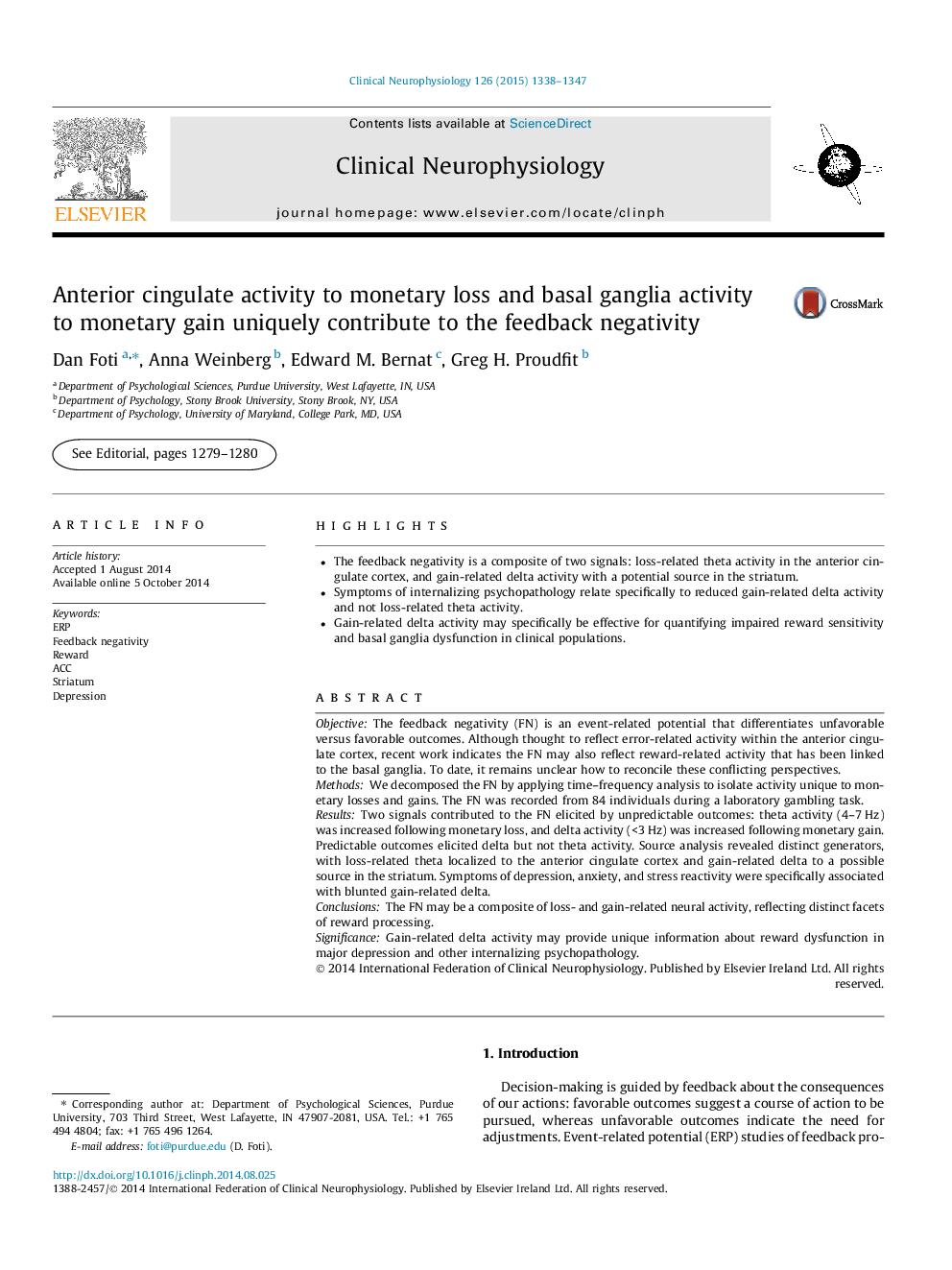| Article ID | Journal | Published Year | Pages | File Type |
|---|---|---|---|---|
| 6007721 | Clinical Neurophysiology | 2015 | 10 Pages |
â¢The feedback negativity is a composite of two signals: loss-related theta activity in the anterior cingulate cortex, and gain-related delta activity with a potential source in the striatum.â¢Symptoms of internalizing psychopathology relate specifically to reduced gain-related delta activity and not loss-related theta activity.â¢Gain-related delta activity may specifically be effective for quantifying impaired reward sensitivity and basal ganglia dysfunction in clinical populations.
ObjectiveThe feedback negativity (FN) is an event-related potential that differentiates unfavorable versus favorable outcomes. Although thought to reflect error-related activity within the anterior cingulate cortex, recent work indicates the FN may also reflect reward-related activity that has been linked to the basal ganglia. To date, it remains unclear how to reconcile these conflicting perspectives.MethodsWe decomposed the FN by applying time-frequency analysis to isolate activity unique to monetary losses and gains. The FN was recorded from 84 individuals during a laboratory gambling task.ResultsTwo signals contributed to the FN elicited by unpredictable outcomes: theta activity (4-7Â Hz) was increased following monetary loss, and delta activity (<3Â Hz) was increased following monetary gain. Predictable outcomes elicited delta but not theta activity. Source analysis revealed distinct generators, with loss-related theta localized to the anterior cingulate cortex and gain-related delta to a possible source in the striatum. Symptoms of depression, anxiety, and stress reactivity were specifically associated with blunted gain-related delta.ConclusionsThe FN may be a composite of loss- and gain-related neural activity, reflecting distinct facets of reward processing.SignificanceGain-related delta activity may provide unique information about reward dysfunction in major depression and other internalizing psychopathology.
